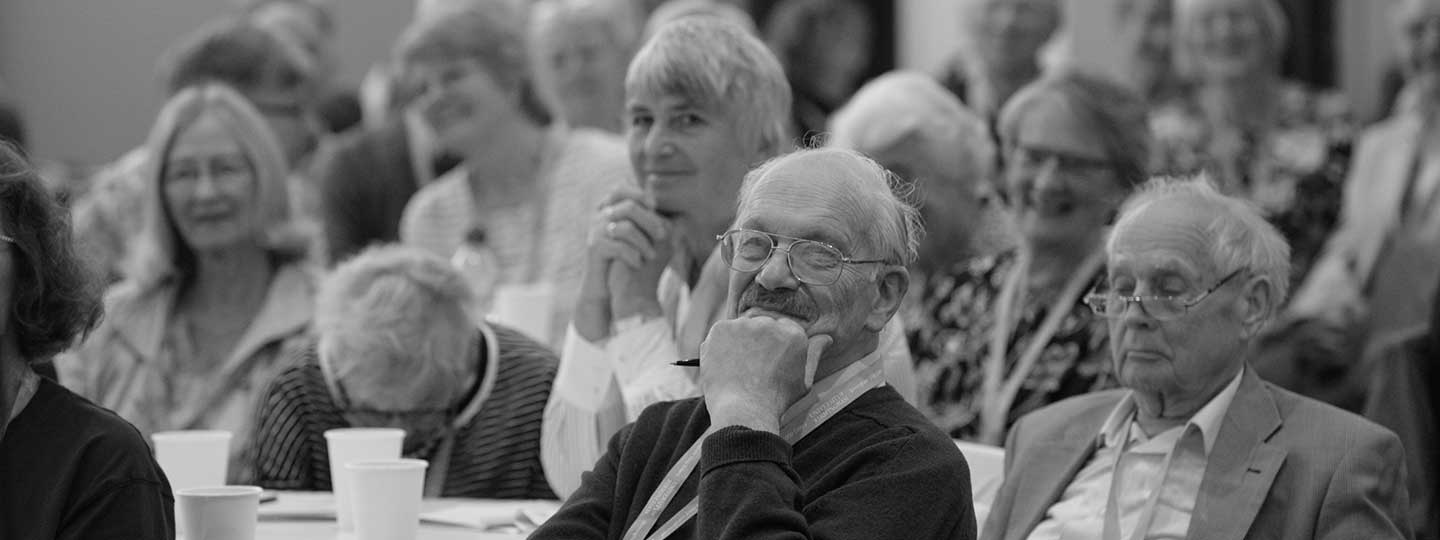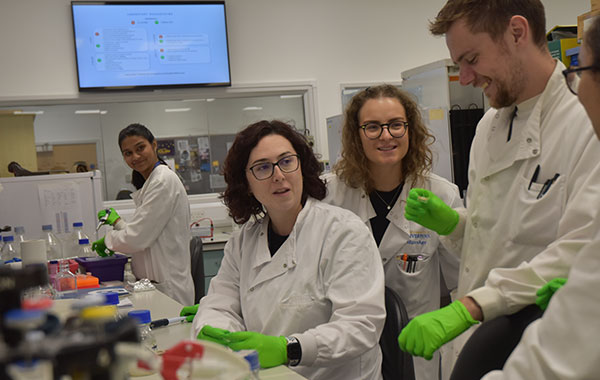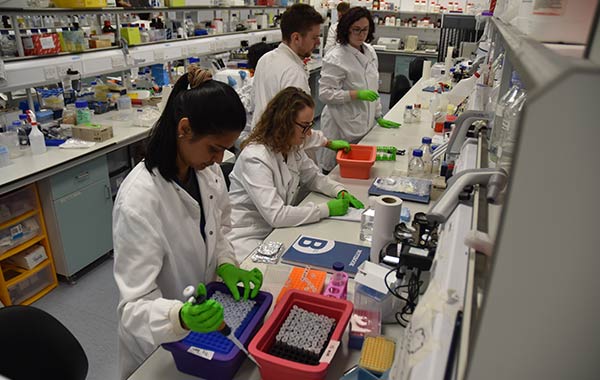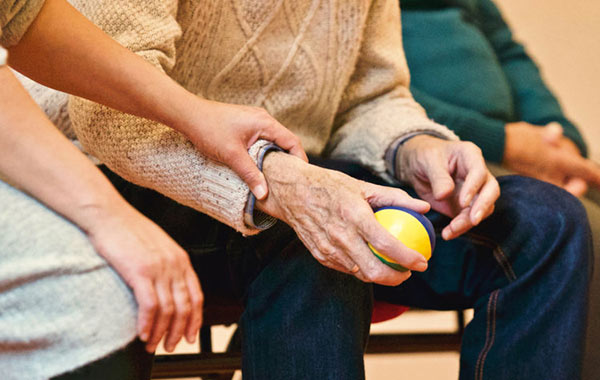Knowledge to maximise healthspan
22 October 2024
Research from our Ageing Centres can help your patients live healthier for longer.
Getting older may be inevitable but it doesn’t have to be associated with an equal decline in musculoskeletal health. Musculoskeletal decline can lead to frailty, which is linked with poorer health and higher healthcare service use, as well as detrimental effects to a person’s mobility, independence and quality of life.

Our Ageing Centres
Dedicated research is needed to understand how to maintain musculoskeletal health.
That’s why Versus Arthritis has co-funded two Ageing Centres of Excellence since 2012: the Centre for Integrated Research into Musculoskeletal Ageing (CIMA) and the Centre for Musculoskeletal Ageing Research (CMAR).
Our Ageing Research Centres have debunked myths about what causes and perpetuates musculoskeletal ageing across our whole life course, improved guidelines, and empowered older people to better self-manage their health in many ways.
Read on to discover key research highlights that can help you and your patients.
Knowledge is Power
Misinformation is a barrier for patients to effectively self-manage their health, hampering their ability to feel as well as they could. To tackle this, researchers from our Ageing Centres have debunked myths by:
- Emphasising that osteoarthritis is not ‘wear and tear’ or a simple, inevitable process that happens as we age. They’ve shown that genes we inherit from our parents from birth, and small chemical changes that happen to our DNA by the way we live our lives, called ‘epigenetics’, are actually both at play.
- Running ‘Behind the Headlines’ workshops with patients to reveal the various ways that news stories have been spun to falsely exaggerate the truth.

Our Ageing Centres have also found several scientific breakthroughs to help older people get the most ‘bang for their buck’ to improve their musculoskeletal health, such as by showing that:
- Resistance exercise training is one of the most effective forms of exercise to prevent age-related decline in musculoskeletal muscle mass and strength.
- Eating 1.5g of leucine, an amino acid found in fish, nuts and legumes, is as effective at stimulating muscle protein synthesis as 40g of whey protein for older women.
Optimising Osteoporosis Policies
Enabling more people with osteoporosis to get the treatment they need
Research at CIMA demonstrated that osteoporosis management is often suboptimal. In fact, fewer than a third (28.6%) of people with osteoporosis among general practice surgeries in North East England were receiving adequate treatment in 2015.
This discovery, coupled with other evidence from centre members, prompted the National Osteoporosis Guidelines Group to adjust intervention thresholds in their updated guidelines.
Preventing fractures, improving lives, saving NHS money
A community-based hip fracture screening programme for older women, developed by CIMA researchers, could prevent 8,000 hip fractures in the UK annually.

Considering the growing waiting lists for joint replacement surgeries on the NHS, and the painful, life-limiting effects that a hip fracture can bring, a preventative strategy such as a screening programme is in dire need.
It could also save countless hours of NHS workforce time, leading to savings for the NHS and freed up hospital bed space.
This world-first research from CIMA demonstrated that screening for fracture risk, which is not currently advocated in the UK, is feasible and cost-effective.
The centre is now championing this high-quality evidence to inform policy improvements and ultimately improve the lives of people with osteoporosis.
Useful resources
Our Ageing Centres have empowered older people to better self-manage their health in many ways. Evidence-based resources that our Ageing Centres have co-developed, with patients and for patients, include:
- An osteoarthritis leaflet that explains its complex molecular mechanisms using understandable metaphors and illustrations.
- A highly-rated free online course that educates people about how they can improve their musculoskeletal health, now and in older age, by changing their physical activity and dietary habits.
- A series of fitness DVDs tailored for older people, with commercial partner Move It or Lose It®.
And so much more!
You can find out what else our Ageing Centres have discovered in this Impact Report.
Read the Impact Report